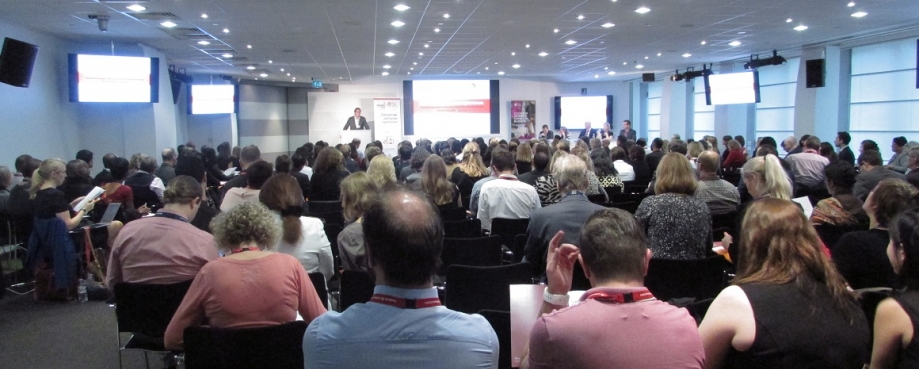
More than 300 delegates converged in London from 19 – 20 October, for the inaugural Ethical Trade and Human Rights Forum. Jointly organised by ETI and Innovation Forum, the conference looked at how we can move beyond the incremental progress of an audit and CSR-based era, to a future of transformative and scalable change for sustainable trade.
The event examined the state of ethical trade today, with a wide range of speakers sharing their thoughts on what’s needed to drive fundamental change for workers in global supply chains. Delegates heard from companies including Coca-Cola, Tesco, Inditex, Primark, Finlays, IKEA, M&S and the Body Shop, trade unions including the ITUC and TUC, and NGOs such as Oxfam and the Migrants’ Rights Network.
The packed agenda covered critical issues facing CSR and ethical trade professionals, including the limitations of an audit-only focus to ethical trade and the necessity of embracing human rights due diligence, as outlined in the UN Guiding Principles on Business and Human Rights. Speakers shared labour rights considerations connected to emerging markets such as Myanmar and Ethiopia, and discussed the business case for promoting a living wage in supply chains. They also looked at the role of trade unions in ethical trade and whether investors are changing the game on human rights.
The UK Modern Slavery Act and its reporting requirements for business were a major focus. ETI launched a research study produced in partnership with the Ashridge Centre for Business and Sustainability on company perceptions and responses to modern slavery. Full news story here.
The conference was followed by the UK launch of the ILO’s new 50 for Freedom campaign, which aims to get 50 countries to ratify the new ILO Forced Labour Protocol by 2018. ETI is a campaign partner, and was pleased to share the platform with this event. You can read more about the campaign, and lend your support here.
In his closing remarks, ETI Chair Philip Chamberlain said: “The business and human rights agenda is moving fast. These two days highlighted a number of challenges for companies, but with that come opportunities. This is a time for businesses to engage internally, ensuring that everyone is aware of their responsibilities. Boards and senior leaders need to review strategic plans, build better policies that support the new agenda and define what meaningful engagement with suppliers and workers really looks like – to help us reach the right result.”
